The harmonized sales tax (HST) is a consumption tax in Canada. It is used in provinces where both the federal goods and services tax (GST) and the regional provincial sales tax (PST) have been combined into a single value-added tax.

Law enforcement in India is imperative to keep justice and order in the nation. Indian law is enforced by a number of agencies. India has a multi-layered law enforcement structure with both federal and state/union territory level agencies, including specialized ones with specific jurisdictions. Unlike many federal nations, the constitution of India delegates the maintenance of law and order primarily to the states and territories.
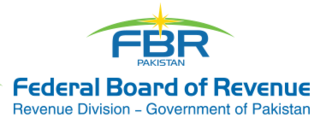
The Federal Board of Revenue (FBR) (Urdu: وفاقی بورڈ محصولات), formerly known as Central Board of Revenue (CBR), is a federal law enforcement agency of Pakistan that investigates tax crimes, suspicious accumulation of wealth, money-laundering make regulation of collection of tax. FBR operates through Inspectors-IR that keep tax evaders under surveillance, assess taxable incomes and perform special tasks for FBR Headquarters. FBR performs role of collection of taxation in the country from all individuals and businesses.
Taxes in India are levied by the Central Government and the State Governments by virtue of powers conferred to them from the Constitution of India. Some minor taxes are also levied by the local authorities such as the Municipality.
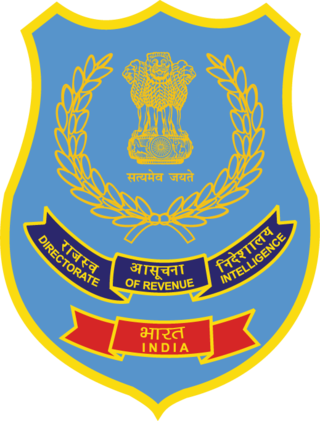
The Directorate of Revenue Intelligence (DRI) is the apex anti-smuggling intelligence, investigations and operations agency in India.
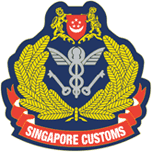
The Singapore Customs is a government agency under the Ministry of Finance of the Government of Singapore. Singapore Customs was reconstituted on 1 April 2003, after the Customs and Excise Department and the Trade Facilitation Division and Statistics Audit Unit of International Enterprise Singapore were merged. The border function's at the land, air and sea checkpoints were also simultaneously transferred to Immigration and Checkpoints Authority (ICA). Singapore Customs became the lead agency on trade facilitation and revenue enforcement matters. It is also responsible for the implementation of customs and trade enforcement measures including those related to Free Trade Agreements and strategic goods.
The Economic Intelligence Council is the apex forum overseeing government agencies responsible for economic intelligence and combating economic offences in India. The Council is also the apex of 18 regional economic intelligence committees, and is part of the Union Ministry of Finance. It was formed in 1990.
The Central Economic Intelligence Bureau (CEIB) is an Indian intelligence agency responsible for gathering information and monitoring the economic and financial sectors for economic offences and warfare.

The Narcotics Control Bureau is an Indian central law enforcement and intelligence agency under the Ministry of Home Affairs, Government of India. The agency is tasked with combating drug trafficking and the use of illegal substances under the provisions of Narcotic Drugs and Psychotropic Substances Act.

The Central Board of Indirect Taxes and Customs (CBIC), formerly the Central Board of Excise and Customs, is a statutory body under the Department of Revenue, Government of India. It oversees the administration of indirect taxes, including customs duties, excise duties, and the Goods and Services Tax (GST). CBIC's function also extends to prevention of smuggling, illicit financial activities, and regulation and control of narcotics through its attached/subordinate offices.

The Enforcement Directorate (ED) is a law enforcement and economic intelligence agency of the Government of India. Established on 1 May 1956, it is responsible for enforcing economic laws and combating financial crimes. The ED operates under the Department of Revenue, Ministry of Finance, with its headquarters in New Delhi.

The Investigation Division of the CBDT, abbreviated as Inv-CBDT, is the revenue enforcement agency of the Central Board of Direct Taxes, Government of India. It functions under the Department of Revenue in the Union Ministry of Finance and is concerned with the collection and administration of, as well as enforcement and prosecution of cases related to, the various direct taxes accruing to the Union Government.
The Income Tax Air Intelligence Unit is a law enforcement agency, under the Ministry of Finance responsible for handling tax evasion and cross-border illegal trade in India in airports in consultation with the Central Board of Indirect Taxes and Customs and the CISF. It functions under the Zonal Deputy Director (Intelligence) Income Tax. The agency functions under the rules prescribed by its parent organisation to handle any intimidation in course of their new duty of checking and gathering intelligence on tax evasion in airports. Their mandate will soon be extended to Ports. The Election Commission of India has congratulated this agency on their path breaking efforts to fight tax evasion among politicians.

The Regional Economic Intelligence Committee is the apex forum overseeing government agencies responsible for economic intelligence and combating economic offenses in the respective states of India. The committee is under the Economic Intelligence Council. It was formed in 1990. The head of the committee is usually the Director General of the Directorate General of Income Tax Investigation.
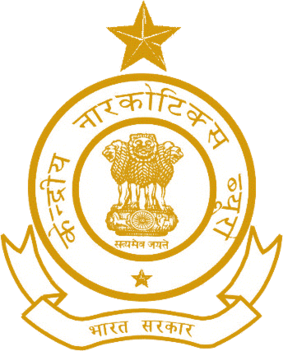
Central Bureau of Narcotics (CBN) is affiliated with India's Department of Revenue (IRS) and regulated by the country's Central Board of Indirect Taxes and Customs. The main function of CBN is to stop opium production and trade, and to issue licences for production of legal synthetic drugs. The Central Bureau of Narcotics headquarters is located at Gwalior.
The Goods and Services Tax (GST) is a successor to VAT used in India on the supply of goods and service. Both VAT and GST have the same taxation slabs. It is a comprehensive, multistage, destination-based tax: comprehensive because it has subsumed almost all the indirect taxes except a few state taxes. Multi-staged as it is, the GST is imposed at every step in the production process, but is meant to be refunded to all parties in the various stages of production other than the final consumer and as a destination-based tax, it is collected from point of consumption and not point of origin like previous taxes.

The Indian Revenue Service , often abbreviated to IRS or IRS , now called IRS(C&IT) is a part of central civil service of the Government of India. It functions under the Department of Revenue of the Ministry of Finance and is under the administrative direction of the Revenue Secretary and the ministerial command of the Minister of Finance. The IRS is primarily responsible for collecting and administering indirect taxes accruing to the Government of India. It is one of the largest civil service amongst the organised civil services in the Indian government and serves the nation through discharging sovereign functions of collection of revenue for development, security and governance.
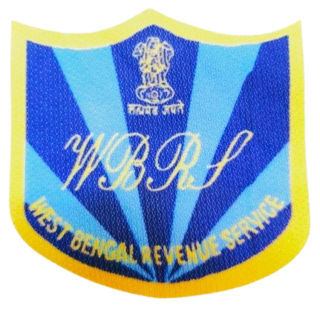
West Bengal Revenue Service (WBRS) is one of the Group A services under West Bengal Civil Services, recruited through a competitive examination conducted by West Bengal Public Service Commission. The service was created in 2017 merging four erstwhile services concerning revenue matter and revenue collection. It functions under the Revenue Branch and overall administrative control of Department of Finance.











